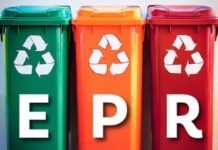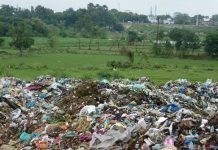Leading environmental compliance specialist Ecoveritas has called on the world leaders gathering in Paris for the UN’s second International Negotiating Committee (INC-2) to count Extended Producer Responsibility among the key provisions for inclusion to ensure circularity.
Over five days, 150 member states and 1,500 people, including world leaders and industry executives, are coming together to negotiate the UN’s #GlobalPlasticsTreaty.
Extended Producer Responsibility makes the manufacturer of the product responsible for the entire life cycle of the product and especially its take-back, recycling and final disposal.
As governments seek to define key elements of the treaty and develop a draft legal text, Ecoveritas believes any such move to end plastic pollution should prioritize plastic packaging, which creates around 40% of total plastic waste. Plastic packaging is also one of the plastics most likely to end up in the environment.

“It is a huge moment,” said Ecoveritas’ Chief Strategy officer Andrew McCaffery. “We can change so much of how we design, produce, sell, and consume for the better for generations to come.
“EPR, plastic taxes, carbon taxes, anti-greenwash fines, and the UN Global Plastics Treaty are all compounding to impact businesses that continue to misuse plastic,” she continued.
“The story is well told. What can still be one of the world’s most useful resources has drawn society into a dependency that threatens human and environmental health.
“Any sustainable future would surely benefit from ending the plastics debate. Organizations like ours can help you take a more conscious and reasoned approach to deploying a material the UN estimate is 91% single use.”
McCaffery insists that establishing an effective and enforceable set of global rules and responsibilities is the very least we can do considering the issues facing the planet, an assessment of how we’re dealing with the problems, and the kinds of solutions that are necessary for us to be able to continue to live and thrive here.
“With EPR, it is fair to say that fragmented national approaches are hurting progress globally,” she added. “Moreover, shared guidelines and minimum standards for EPR are necessary to define the desirable minimum operating standards of EPR schemes.
“Our problem is that different countries do wildly different things; some implement bans, and others levy taxes. There are also different approaches to collection, sorting, and disposal.
“Where reduction and prevention are not possible, developing a well-designed EPR is proven to help the circulation of all plastic items that cannot be eliminated, keeping them in the economy at their highest value.
“Designing packaging life cycles that end as well as they begin is key. And EPR policies can tip the scales so that all companies introducing packaging and other products to the market contribute financially to their after-use collection and treatment.”
The meeting, INC-2, is taking place from 29 May to 2 June . It is the second of five sessions to hammer out an international, legally binding treaty to curb plastic pollution. Negotiators aim to reach a consensus by the end of 2024.











